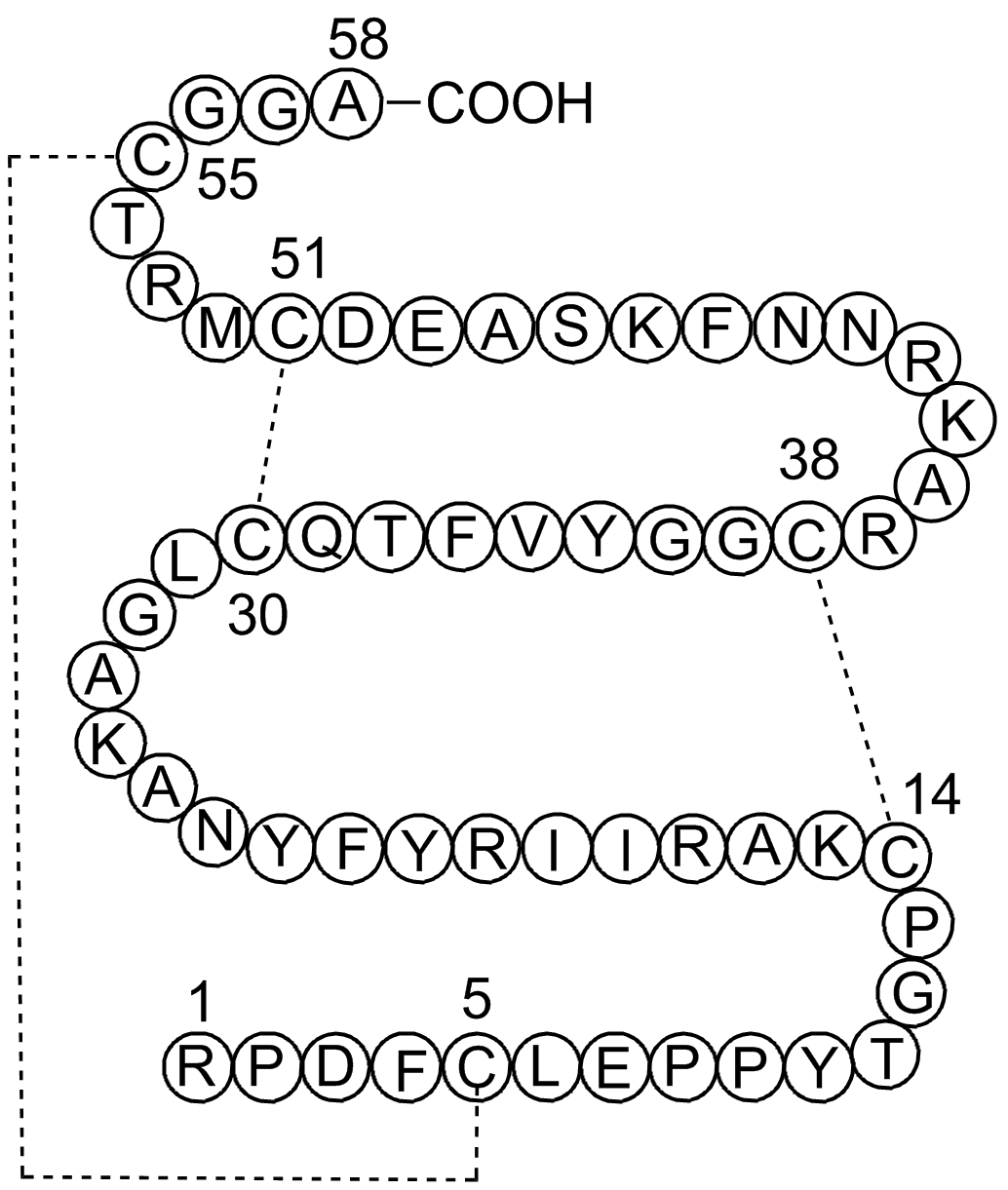Aprotinin (Synonyms: Bovine Pancreatic Trypsin Inhibitor, BPTI) |
| Catalog No.GC12900 |
A serine protease inhibitor
Products are for research use only. Not for human use. We do not sell to patients.

Cas No.: 9087-70-1
Sample solution is provided at 25 µL, 10mM.
Aprotinin, a naturally occurring serine protease inhibitor, saves lives and decreases the risk of stroke and repeat surgery for massive bleeding1, 2, 3.
The use of aprotinin did not significantly increase the risk of renal failure or the need for postoperative renal replacement despite an increase in the proportion of patients who had a doubling of serum creatinine levels. The adjudication of death did not identify renal failure as contributing to or causing death associated with aprotinin use. A Meta analysis by Brown and colleagues showed a nonsignificant relative risk of renal failure with high-dose aprotinin4.
Although aprotinin is potentially more effective than other active agents in controlling hemostasis, we noted only a possible trend suggesting that it decreased massive bleeding. Only repeat surgeries and important blood losses through chest tubes, one of the main indications for surgery, were potentially improved by the use of aprotinin. Aprotinin did not appear to prevent massive bleeding or save the life of patients who had massive bleeding.
The adverse effects on mortality associated with aprotinin may also have been present among healthier patients, those under the age of 65 years, and those without coexisting illnesses at the time of surgery.
Despite the possibility of a modest reduction in the risk of massive bleeding, the strong and consistent negative mortality trend associated with aprotinin as compared with lysine analogues precludes its use in patients undergoing high-risk cardiac surgery5.
Reference:
1.?Henry DA, Carless PA, Moxey AJ, et al. Anti-fibrinolytic use for minimising perioperative allogeneic blood transfusion. Cochrane Database Syst Rev 2007;4:CD001886.
2.?Levi M, Cromheecke ME, de Jonge E, et al. Pharmacological strategies to decrease excessive blood loss in cardiac surgery: a meta-analysis of clinically relevant endpoints. Lancet 1999;354:1940-7.
3.?Sedrakyan A, Treasure T, Elefteriades JA. Effect of aprotinin on clinical outcomes in coronary artery bypass graft surgery: a systematic review and meta-analysis of randomized clinical trials. J Thorac Cardiovasc Surg 2004;128:442-8.
4.?Brown JR, Birkmeyer NJ, O’Connor GT. Meta-analysis comparing the effectiveness and adverse outcomes of antifibrinolytic agents in cardiac surgery. Circulation 2007;115:2801-13.
5.?Dean A. Fergusson,? Paul C. Hébert et al, A Comparison of Aprotinin and Lysine Analogues in High-Risk Cardiac Surgery, N Engl J Med 2008; 358:2319-2331
Average Rating: 5 (Based on Reviews and 30 reference(s) in Google Scholar.)
GLPBIO products are for RESEARCH USE ONLY. Please make sure your review or question is research based.
Required fields are marked with *




